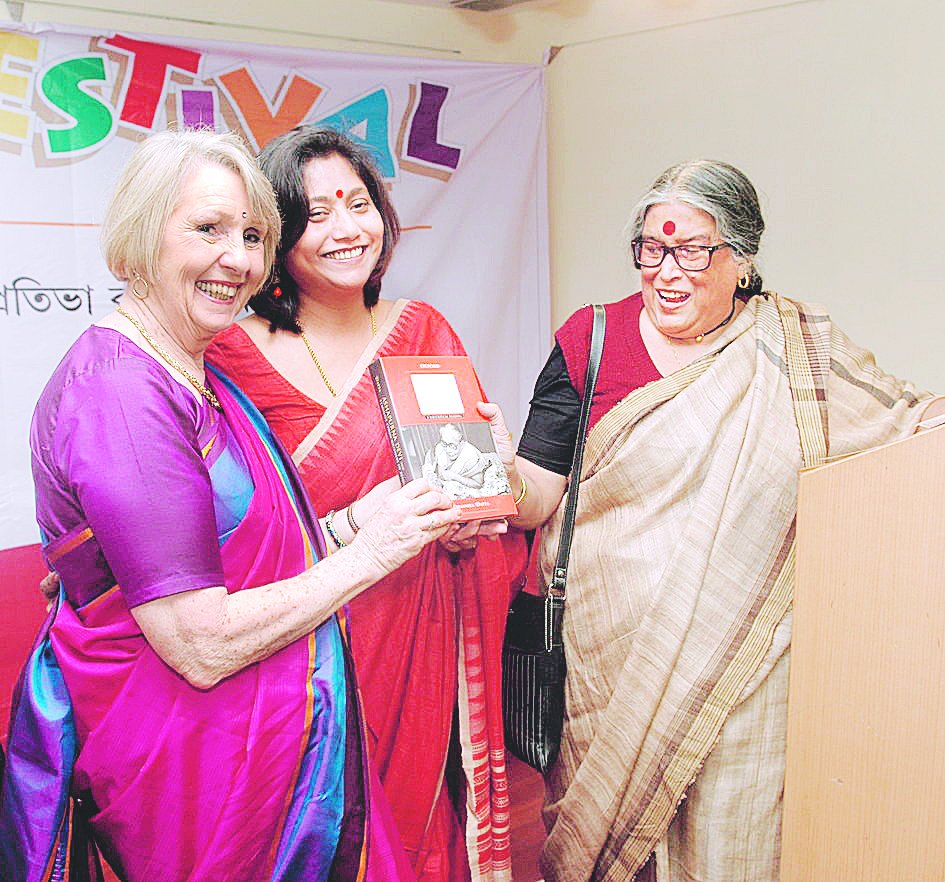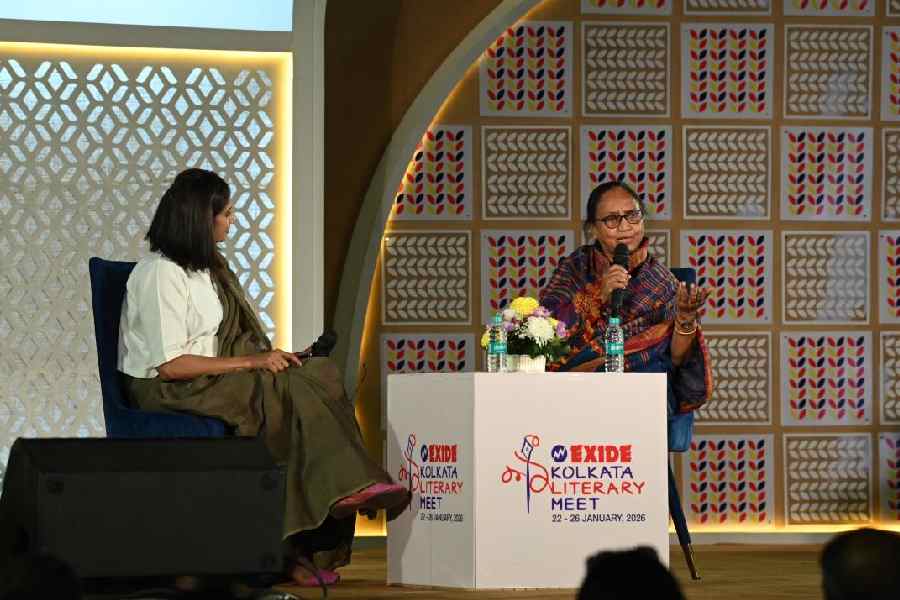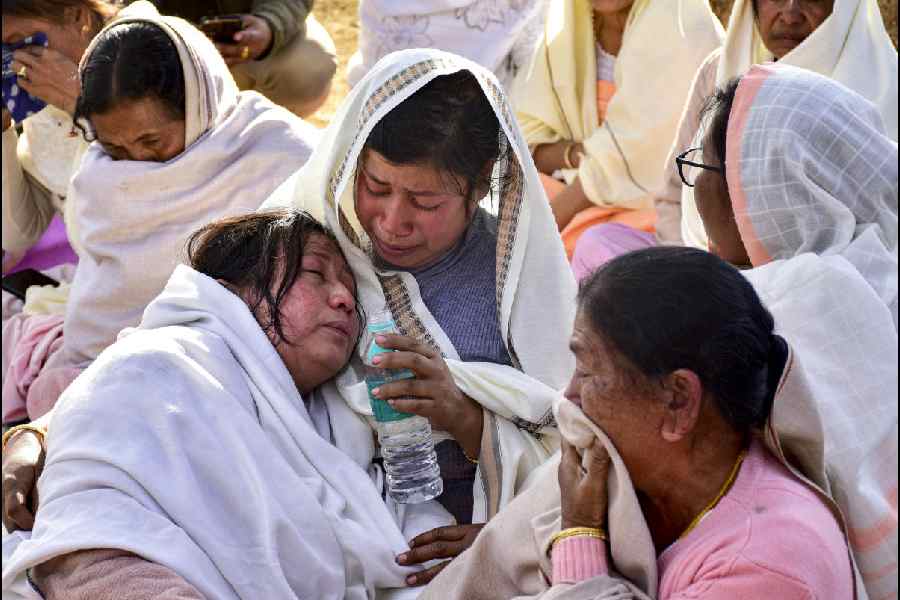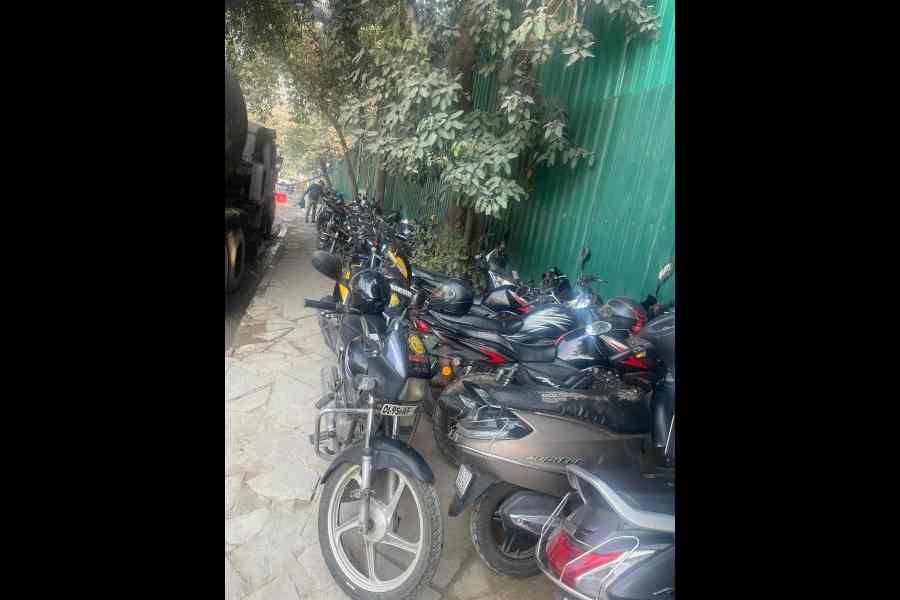
Soi Mela, the annual meeting of creative women who are leaving their signature in various fields of arts, started on a muted note this year. A soi had passed away that morning. Soi president Nabaneeta Dev Sen placed a yellow rose by the lectern as a mark of her departed childhood friend Jasodhara Bagchi's ever-blooming presence.
This edition of Soi Mela marked the centenary of Pratibha Basu. "She used to call herself our head soi," said Dev Sen, recalling fondly how she had called them home when she turned 90.
The first book of research in English on Ashapurna Devi's non-fiction, by Dipannita Datta, was launched by poet Sankha Ghosh and Geraldine Forbes, Professor Emeritus at New York University and in the words of Dev Sen, "someone who has loved Indian women with all her intellect for four decades".
Sumita Chakraborty, who met Basu towards the end of her life, spoke at length on the author. Chakraborty said Basu wrote relentlessly but away from the public eye. "Damayanti (her daughter) has written that her father (Buddhadeb Basu) had his writing table where he would be served tea. But no one knew where or when her mother sat and wrote. " But she kept writing, be it novels or on the Mahabharata. She also cooked, decorated the house, bound books and acted in plays.
The Basus had also started a 1paisa series of stories that stopped for financial reasons. There was little royalty in those days. She would save coins in an earthen pot that she later broke to partially fund her daughter's marriage. She also helped people whenever she could and played an active role in constructing the Basu house.
Basu gave up her childhood training in music and dance after marriage but not her writing. "She may not match the male doyens in prose like Tarashankar or Manik Bandyopadhyay but she knew her ground - the domestic circle. Her analysis of relations, especially between husband and wife, betrayed no illusions," Chakraborty said.
The evening also saw performance of excerpts from Sita Theke Shuru, based on Dev Sen's feminist retellings of Ramayana by Nirbak Abhinay Academy and readings from Basu's Aayna by another soi, elocutionist Urmimala Bose. The inauguration started and ended with songs, by Suranjana Dasgupta and Mousumi Bhowmik respectively. Krishna Basu and Pranati Tagore recited Bengali poems down the ages from the Fifties to the Nineties and Ramanjit Kaur put up a mixed media performance on Sita in Hindi.
The next three days saw theatrical performances by Usha Ganguli, Sohini Sengupta and Senjuti Mukhopadhyay, as well as music recitals by Riddhi Bandyopadhyay and Swagatalaxmi Dasgupta. The group, Jalpaiguri Iman, staged two plays - Katha Chitrangada and Bishohari Katha. Members of Soi read Dev Sen's play Meshomoshai-er konyaday. Youngsters of the group Shriek of Silence staged Portia, using five stories from The Vagina Monologues and adapting them to Indian context.
Participants came from outside Bengal as well - Selina Hossain from Bangladesh, Antara Dev Sen from Delhi and Prabashini Mahakud from Odisha.
An exhibition of paintings by women artistes and posters of plays and films directed by women was also put up.










